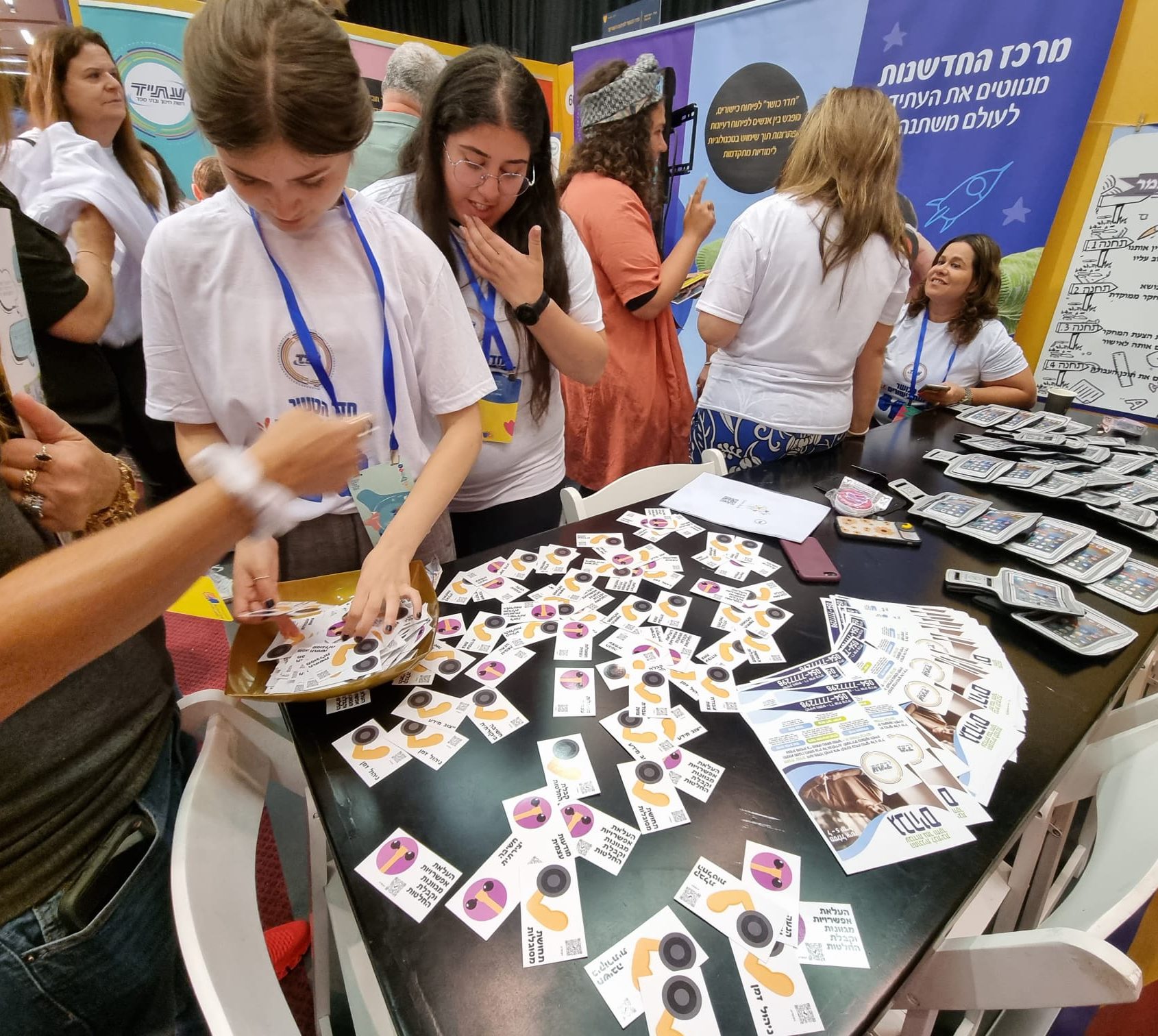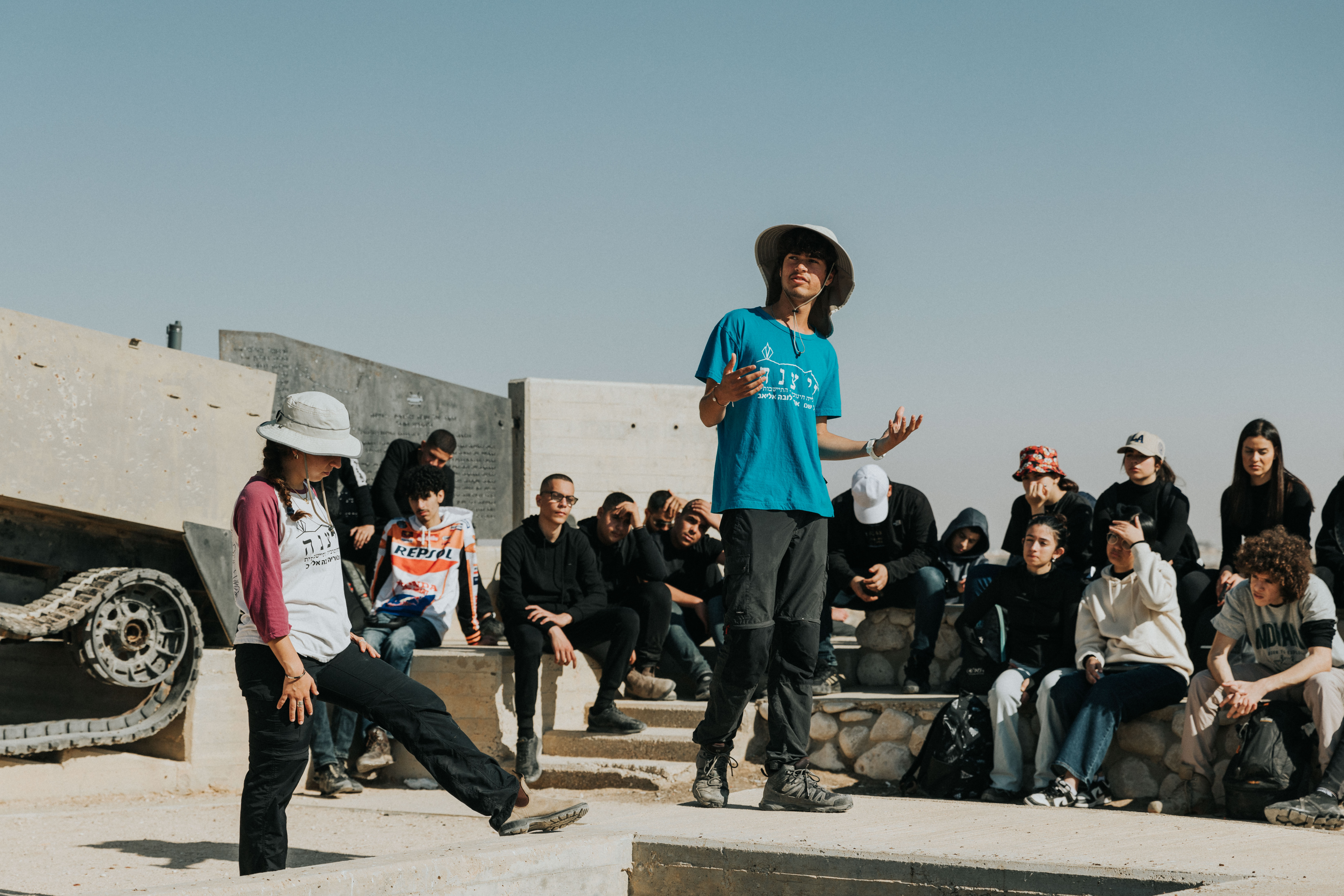Overview
A Journey Through Words is a three-year program in the humanities and language subjects for junior high students. It aims to position writing as a central tool for developing thinking, deepening understanding, fostering self-expression, and strengthening communication skills.
The program is based on a dialogic approach, which views learning as a social process rooted in the exchange of ideas, interpretations, and diverse voices. This perspective is reflected at every stage of the learning process:
- In reading, as an active encounter with different voices in the text
- In classroom dialogue, as a space where students listen, question, challenge, and offer new perspectives
- In writing, as a personal response to the shared conversation and the layers of meaning within the text serving both as reflection and as an invitation to connect with one’s inner world
Writing emerges from the collective learning experience and transforms the ideas developed through reading and discussion into meaningful expression. Students learn that high-quality writing is not only an isolated personal product, but a meeting point of ideas those sparked in discussion, discovered in texts, and generated from within.
The program empowers students to see writing as a tool for thinking and meaningful dialogue with themselves, with their peers, and with larger ideas. It seeks to connect writing to both the academic and personal world of the learner.
What’s in the program?
- Inquiry-Based Learning Units
The program includes rich, thought-provoking units built around essential questions open, complex, and relevant questions that invite students to explore ideas, reflect on texts and real-world issues, develop their positions, and express their unique voices. Each unit integrates a variety of texts fiction, nonfiction, poetry, Jewish sources, and more alongside structured classroom dialogue and reflective writing tasks that help students process and articulate their insights.
- Professional Development and Ongoing Support for Educators
Teachers of humanities and language subjects receive consistent professional development, including bi-weekly or monthly workshops. These sessions focus on hands-on experiences, pedagogical tools, reflective practice, and peer learning. Educators engage with texts, explore current teaching models, and analyze student writing to strengthen their instructional practices and confidence.
- Pedagogical Resources and Frameworks
Teachers are provided with extensive pedagogical tools including:
- Theoretical foundations of the program
- Joseph Campbell’s Hero’s Journey model
- The Writing Cycle model
- Sample learning units
- Tools for peer dialogue and formative feedback
These materials are designed to help teachers bring the principles of the program into daily classroom practice in a meaningful and accessible way.
- Impact Research: Achievement and Writing Confidence
The program includes student assessments twice a year to monitor progress in reading comprehension and written expression, with a strong focus on building writing confidence. Additionally, teacher feedback is collected to evaluate professional growth and attitudes toward writing instruction. This research provides critical insights that support ongoing development and improvement of the program.
- Creating a Shared Pedagogical Language
Beyond classroom practices, the program seeks to cultivate a school-wide writing culture. It promotes a shared pedagogical language across disciplines terms like “essential question,” “dialogic discussion,” “writing for understanding,” “writing for expression,” and “the writer’s voice.” Participating schools often implement interdisciplinary collaborations, values-based writing projects, and community-based writing exhibitions and publications.
What’s Required from the School?
- Build a professional team of 5–10 humanities/language teachers (grades 7–9)
- Allocate at least one weekly lesson per teacher for program implementation
- Appoint a lead teacher to coordinate the program at school level
- Commit to collaborative work within the school and with the development team, including sharing data for ongoing improvement


